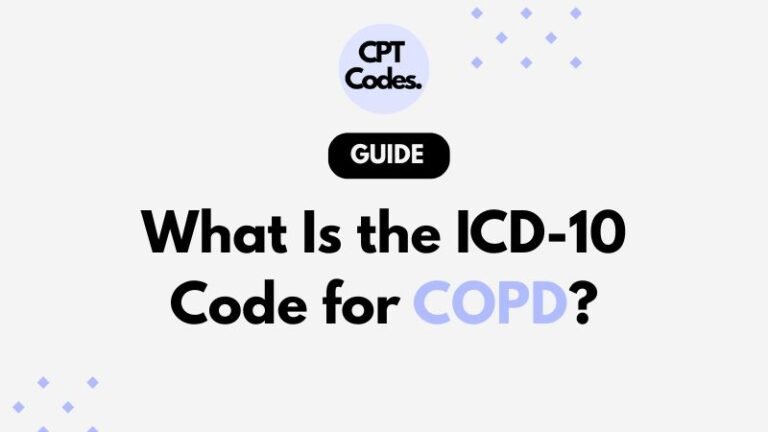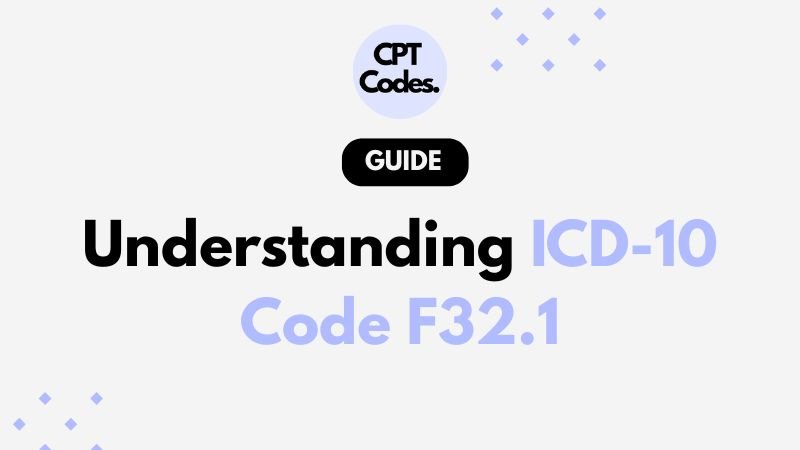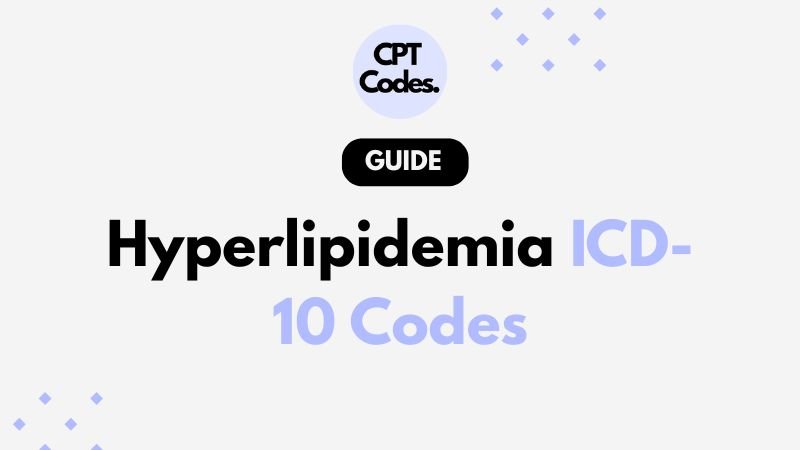What Is COPD?
COPD (Chronic Obstructive Pulmonary Disease) is a long-term illness that affects the lungs and makes it hard to breathe.
It usually happens because of smoking, air pollution, or long-term exposure to dust or chemicals.
Main ICD-10 Code for COPD
The main medical coding number (ICD-10) for COPD is:
-
J44.9 — Chronic obstructive pulmonary disease, unspecified
This code is used when a doctor diagnoses COPD but doesn’t mention if the patient is currently having a flare-up or infection.
Other Common COPD ICD-10 Codes
| ICD-10 Code | Description |
|---|---|
| J44.0 | COPD with acute lower respiratory infection (like pneumonia or bronchitis) |
| J44.1 | COPD with (acute) exacerbation (when symptoms suddenly get worse) |
| J44.9 | COPD, unspecified (general or stable COPD) |
Tip: If the doctor says the patient has a COPD flare-up or infection, you should use J44.0 or J44.1 instead of J44.9.
Example
A 68-year-old man who has smoked for many years comes for a check-up. He has mild shortness of breath, but no fever or signs of infection.
Correct Code: J44.9 – Chronic obstructive pulmonary disease, unspecified
If the same patient had pneumonia, the correct code would be J44.0.
Why Accurate Coding Matters
Using the right ICD-10 code helps:
- Healthcare providers track and treat the disease correctly
- Insurance companies process claims faster
- Hospitals and clinics collect accurate health data
Key Takeaways
- The main ICD-10 code for COPD is J44.9
- Use J44.0 for COPD with infection
- Use J44.1 for COPD with flare-up or worsening symptoms
- Always check the medical record for specific details before choosing a code



